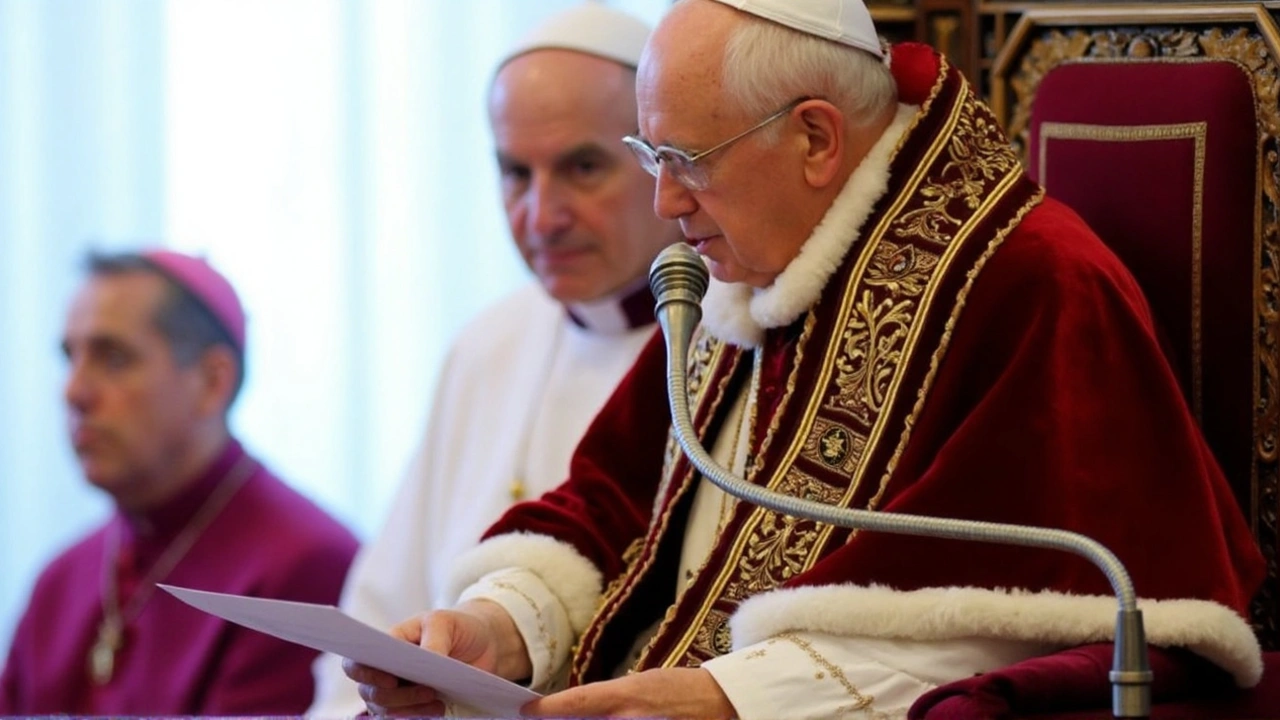Pope Benedict XVI
Pope Benedict XVI was a theologian who became the first pope in six centuries to resign from the papacy. That fact alone reshaped how people think about papal life and Church leadership.
Born Joseph Ratzinger in 1927 in Bavaria, he rose through the ranks as a respected scholar. He served as Prefect of the Congregation for the Doctrine of the Faith and helped shape Catholic doctrine for decades. Elected pope in 2005 after John Paul II, he focused on liturgy, faith, and reason. In February 2013 he surprised the world by announcing his resignation, citing declining strength and the demands of the office.
His writings remain central to understanding modern Catholic thought. Read his encyclicals: Deus Caritas Est on love, Spe Salvi on hope, and Caritas in Veritate on social ethics. He also published detailed theological essays and books that explain doctrine in clear terms. If you want a short primer, start with his speeches and the Vatican summaries of each encyclical.
Benedict's time as pope included praise and controversy. He emphasized traditional liturgy and warned about secular trends. At the same time, his handling of clergy abuse cases drew heavy criticism and sparked demand for transparency. He faced those challenges while also managing diplomatic relations and global visits.
He visited Africa in 2009, traveling to Cameroon and Angola. Those visits focused on the local Church, youth, peace, and development. For African readers, his speeches from those trips offer direct lines to his views on faith and social issues in the continent.
This tag page gathers our coverage of Benedict's life, teachings, and the debates he inspired. Use it to find news pieces, analysis, and timelines that explain key moments. Want to find something fast? Search within the tag for terms like "resignation 2013", "Deus Caritas Est", or "Cameroon visit 2009". That narrows results to the most relevant articles.
Quick facts
Joseph Ratzinger — born 1927; elected pope 2005; resigned 2013. Major themes — faith and reason, liturgy, social doctrine. Notable works — encyclicals and theological essays. African visits — Cameroon and Angola, 2009.
Where to read more
For primary sources check Vatican.va for speeches and official texts. For reliable reporting, look for timelines from major news outlets and academic reviews for deeper context. If you prefer videos, search for recorded homilies and interviews from the Vatican's media channels.
Want a short reading plan? Start with the Vatican summaries to get the basics. Then read one encyclical slowly and note key passages. Next, pick a reputable news timeline to see how events unfolded. If you study the abuse reports, compare official statements with independent investigations. For debates about doctrine, read academic reviews and commentaries. This method helps you move from headlines to solid understanding without getting lost in jargon and context.
Pope Benedict XVI Resignation: How a Shock Move Changed the Catholic Church Forever
Pope Benedict XVI stunned the world in 2013 when he became the first pope in over 600 years to resign, citing his age and health. His decision broke tradition, changed the way Catholics think about papal roles, and pushed the Church into an uncertain, but more modern, era.
